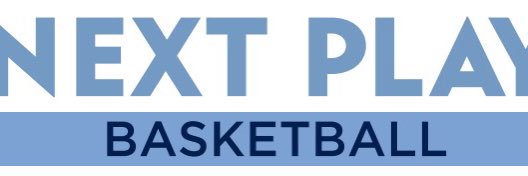
NextPlayBasketball
@NextPlayHoops
All Hoops. No Hype. Just the work. #Innovate #Solve #Serve #PayThePrice #Relentless
Next Play Basketball Coaching Clinic April 26, 2005 - Beaufort, SC Register now - nextplaybasketball.net/clinic

One word that separates strong leaders from average ones: INTENTIONAL. 3 things to be intentional about: 1. Building a foundation of character and maturity 2. Being clear on what you're leading and how you're doing it 3. Setting and communicating expectations with consistency
REAL GROWTH GOALS FOR LEADERS: 1. Build the discipline to stay consistent not just when it’s easy, but when it’s inconvenient. 2. Sharpen your communication, decision-making, and self-awareness so your leadership doesn’t become the ceiling. 3. Strengthen your presence.
Cody Toppert (Capital City GoGo) You should structure practices to be a high quality learning environment. You need to teach w/ methods that maximize transfer from practice to game. Science says the traditional practice plan is not the most effective way to learn
Charles Klask (Denver Nuggets) 5 Responsibilities of the Head Coach: 1) Leadership - Vision/Values 2) Coaching - X's & O's 3) Teaching - Player Development 4) Management - Feel for the Game 5) Director - Running the program day to day
John Lucas III (Las Vegas Aces) Anyone can be great on any given night, only a few can be great every night.
Sean Sweeney (San Antonio Spurs) Day 2 Be process oriented in a results business. Confidence is built through work ethic & your daily approach. Greatness is built by consistency. The ability to concentrate and sustain intensity for long periods of time. Be a problem solver.
Sean Sweeney (San Antonio Spurs) Defending a Great Player: 1) Take away their space 2) Make them work for everything 3) On Ball - Aware & Alert 4) Off Ball - Early, Loud,Verbal/Visual communication 5) On drives - Full Body in gap or stunt at nail 6) Scramble - Everyone knows him
Darnell Lazare (New Orleans Pelicans) Good Team Defense requires: 1) Constant Communication 2) Great Transition D 3) Guarding the Ball 4) Ending the possession with a defensive rebound
Darvin Ham (Milwaukee Bucks) To play with pace and space requires you to play with purpose and force. Coaches can't get bored teaching the details. Who can do you what to help the team? It is the coaches job to help players understand their answers to this question.
Bryan Gates (Philadelphia 76ers) To be an effective defender you have to be able to do two things at once. The man guarding the ball is the MIG (Most Important Guy). Every defensive scheme is predicated by being able to guard the ball.
Pat Delaney (Toronto Raptors) Don't skip steps. Don't skip the most important thing in a rush to cover everything. Empower your players. Give them the tools to succeed. Be an expert on your team and your players. Know everything there is to know about them.
Fred Vinson (Detroit Pistons) Teaching shooting is about the physical and the mental. Use Video - Teach from makes, not misses. Don't "change" their shot - Help them make "their" shot better. Looking for a repeatable process, not just makes or misses.
Jama Mahlalela (Toronto Raptors) To play with pace & space you must have 1) Unified and Collective Movement 2) Cuts at Full Speed (Every cut is a cut to score) 3) Precision Passing (Every pass right place/right time) 4) Skilled Finishing Pace & Space requires force & speed.
Brendan Suhr - Instead of 4 v 4 Shell every day in the preseason, why not play 5 v 5 Shell versus best actions you will have to defend during the season. You still teach your defensive fundamentals and coverages, but spend practice time defending what you will see in games.
Culture isn't what you say - it's your behaviors and what you do when it counts. It's always changing based on what's happening. The most important component? The people in your room. Because they define whether there is character, teamwork, and resilience on a daily basis.
3: How we respond (Resilience) Your response to adversity shows the team's true identity. • Do you blame others? • Do you stay composed under pressure? • Do you quit when it gets hard or do you fight? Champions aren't made by what happens to them, but how they respond.
2: How we interact (Teammate) It means connection and how you treat your teammates. • Do you bring a positive attitude? • Do you look to serve others? • Do you look to lift up the people around you? Great teams have great teammates and great people.
1: How we act (Character) Your actions every day reveal what matters most. • Do you give maximum effort? • Do you cut corners or maintain standards? • Do you do the right thing when no one's watching? Your actions influence others and your behaviors affect the culture.
"Culture is simply how we act, interact, and respond. That's it. Our job is to bring it to life, and the most important component of that is the people in our room." Culture isn't mission statements or posters. It's these 3 behaviors lived out. Let me explain: